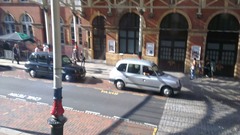 Advances in technology can sometimes leave the law far behind and that is certainly so in the case of burgeoning online minicab company Uber. A dispute between Uber and London’s black cab trade all came down to interpretation of a law which was passed at a time which pre-dated the dominance of the Internet and the presence of smartphones in almost everyone’s pocket.
Advances in technology can sometimes leave the law far behind and that is certainly so in the case of burgeoning online minicab company Uber. A dispute between Uber and London’s black cab trade all came down to interpretation of a law which was passed at a time which pre-dated the dominance of the Internet and the presence of smartphones in almost everyone’s pocket.
The Private Hire Vehicles (London) Act 1998 made it a criminal offence for minicabs to be equipped with taxi meters, which were to be the exclusive preserve of the city’s black taxis. The Licensed Taxi Drivers Assocation (LTDA) – the trade body which represents black cab drivers – argued before the High Court that Uber’s business model broke that embargo.
It was submitted that, when Uber drivers downloaded the company’s app onto their smartphones, they were converted into tax meters. However, the Court found that the phones could not be viewed as devices used for calculating fares. Although they exchanged GPS data with Uber’s server, it was the latter which calculated the sums payable by passengers and it was located outside the vehicles.
